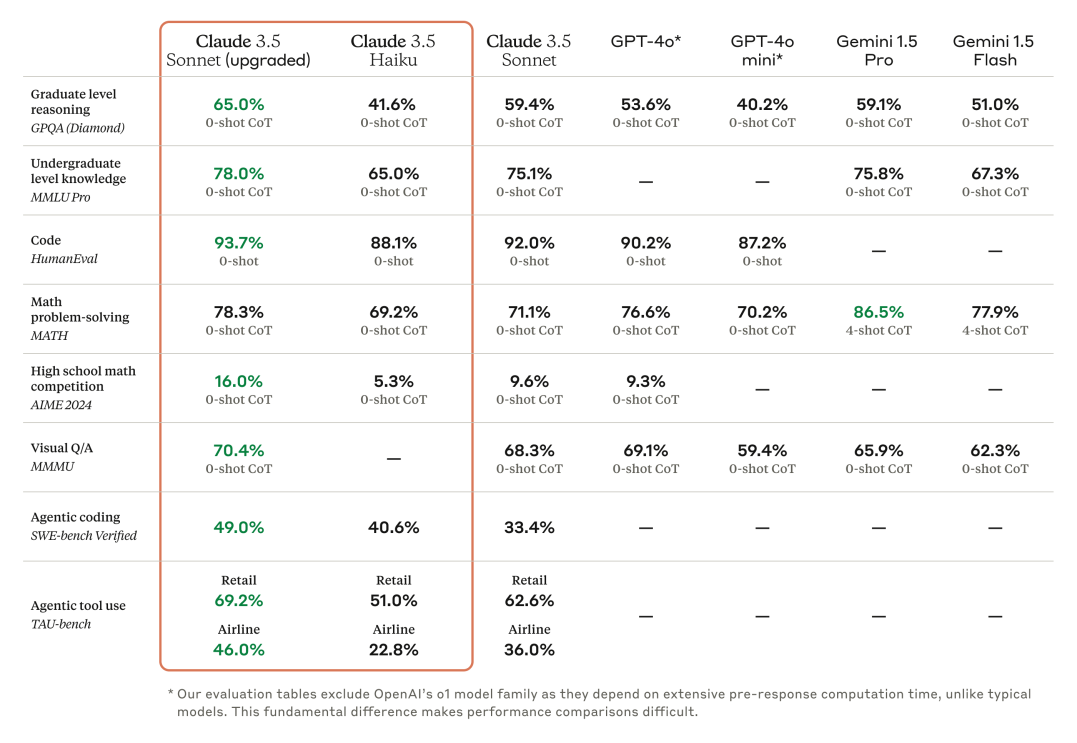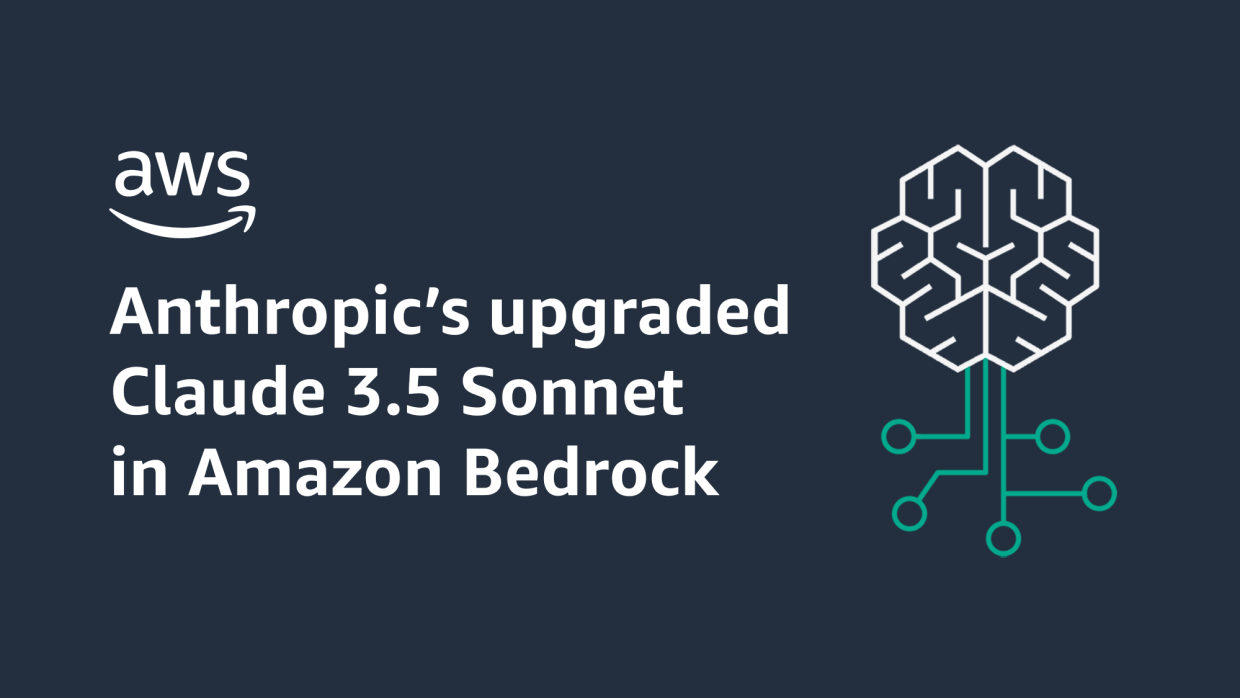To learn more about this announcement, please join us at our upcoming Data & AI Day Roadshow in Melbourne, Sydney and Auckland.
Organisations across enterprise, public sector, regulated industries, startups, and many others, can now leverage Claude 3.5 Sonnet's advanced capabilities while maintaining operational sovereignty and compliance with local regulations.
Additionally, a groundbreaking experimental computer use capability (in public beta) enables Claude 3.5 Sonnet to generate computer actions—like keystrokes and mouse clicks—to accomplish tasks using user interfaces (UI) that can require dozens, even hundreds, of steps. The capability can be used by developers to handle routine tasks like online research and expense filing, driving promising use cases from software testing to automated research, while balancing safe and responsible deployment. According to Anthropic, it is the first frontier AI model to use computers in this way, albeit experimentally, and Anthropic expects the capability to improve over time.
Data from Anthropic shows that the latest version of Claude 3.5 Sonnet delivers across-the-board improvements over its predecessor, with particularly significant gains in coding—an area where it already led the field. It improves performance on SWE-bench Verified from 33.4% to 49%, scoring higher than all publicly available models, while also excelling at vision and writing tasks.
Claude 3.5 Sonnet’s enhanced reasoning and problem-solving skills makes it the ideal model for complex cognitive tasks such as understanding nuanced instructions and context, generating creative solutions to problems, recognizing and correcting mistakes, and delivering more sophisticated analysis around complex data.

Claude 3.5 Sonnet is a multimodal model that excels at processing images with industry-leading vision, particularly when interpreting charts and graphs—helping to get faster, deeper insights from data. It can accurately decipher text from imperfect images—for example, poorly scanned documents—and in doing so, glean more insights than from text alone. This model offers these advancements at the same speed as the original Claude 3.5 Sonnet model and without additional cost.
Local customers and partners including Commonwealth Bank, nib Group, One New Zealand, University of Melbourne, and Deloitte Australia are excited about the potential of Claude 3.5 Sonnet on Amazon Bedrock in the AWS Sydney Region. It will help improve their ability to rapidly test, build, and deploy scalable generative AI applications across their organisations:
“Generative AI is changing the landscape of banking, and is putting personalised, automated experiences that were impossible two years ago, into our customers’ hands today. It’s also revolutionising how we engineer products for our customers, giving our tech specialists more time to be creative and develop truly world-leading experiences by continuously innovating and experimenting with emerging technologies. We look forward to leveraging Claude 3.5 Sonnet through Amazon Bedrock in Australia, creating new opportunities to accelerate AI-driven customer experiences, provide the local tech ecosystem with access to advanced technology and keep Australians’ data safe and secure within Australia,” said Andrew McMullan, Chief Data & Analytics Officer, Commonwealth Bank.
“At nib, we've been leveraging the power of Anthropic's Claude 3 Sonnet model on Amazon Bedrock to evolve our business operations and deliver value and personalised experiences to our members. Our generative AI adoption has seen strong positive and impactful results, from automating call centre operations to streamlining invoice processing, enabling us to create hyper-personalised experiences that are improving how our members are managing their health and wellbeing. With Claude 3.5 Sonnet now available in the AWS Sydney Region, it’ll provide us the capability to leverage its advanced capabilities to drive further innovation while maintaining local data residency requirements,” said Mat Finch, Head of Data & AI, nib Group.
“We’re currently leveraging Claude 3 Sonnet and Claude 3 Haiku models on Amazon Bedrock. AI allows our people to focus more on helping our customers and makes interacting with One NZ easier for those customers. AI supports our people in a number of ways, including providing automated case notes, putting customers through to the right person to help them first time, and understanding the root causes of customer pain points so we can fix these for customers. Between our ongoing technology transformation and introducing AI, we expect to see a significant improvement in our customer experience further amplified by experimenting with Claude 3.5 Sonnet, letting us better predictively support customers as well as allowing them to self-help,” said Chris Fletcher, Chief Consumer & Business Officer, One New Zealand.
“We’re currently using Claude 3 Sonnet through Amazon Bedrock and looking forward to having access to the latest Anthropic Claude 3.5 Sonnet model in the AWS Sydney Region, to meet our compliance needs and help us serve the demands of a growing base of constituents using our generative AI tool, Spark AI. The University launched Spark AI in 10 weeks, which empowers 2,000 staff to build AI projects and access a simple chat interface querying over 350 connected datasets across teaching, research, and operations,” said Allister Payne, Innovation Lead, University of Melbourne.
“The release of the upgraded Claude 3.5 Sonnet on Amazon Bedrock in the AWS Sydney Region represents a significant advancement in AI capabilities for organisations with local model hosting requirements. This innovative model combines advanced logical reasoning, contextual understanding, and synthesis with superior coding, writing and vision skills, enabling it to tackle more complex, multi-modal tasks with ease. What this will mean for our clients, is that as they look to adopt and prove the value of Generative AI across their organisation, users will have faster, more accurate, and human-like interactions across their Generative AI workflows improving adoption and ultimately ROI,” said Kale Temple, Partner, AI & Data at Deloitte Australia.
Upgraded Claude 3.5 Sonnet strengths
- Advanced coding capabilities: Offering strong performance in planning and solving for complex coding tasks, ranging from code migrations, code fixes, and translations.
- Improved understanding of context: Combining strong context comprehension, advanced reasoning, and synthesis to deliver impressively fast response times and natural-sounding, human-like interactions across use cases like content generation, document Q&A, and customer service.
- Agentic tasks and tool use: Excelling in instruction following, tool selection, error correction, and advanced reasoning for agentic workflows that require the use of tools. People with AI skills can boost their salaries by 47%, and AWS is launching a suite of new certifications and courses to help grow those skills.
“The local availability of the upgraded Claude 3.5 Sonnet through Amazon Bedrock reinforces our commitment to empowering Australian organisations to experiment with – and deploy – innovative and scalable AI solutions that adhere to local data residency requirements and stringent security standards. Claude 3.5 Sonnet's new computer use feature, and enhanced capabilities in coding, context understanding, and multimodal processing, represent a significant leap forward in generative AI. Today’s launch, combined with our planned $13.2 billion investment by 2027 into Australia, underlines our commitment to help accelerate digital transformation and fuel economic development across the nation,” said Nam Je Cho, Director of Solutions Architecture at AWS in Australia and New Zealand.
In September, Amazon Bedrock was added to the latest AWS Information Security Registered Assessors Program (IRAP) assessment, allowing Australian government agencies and organisations to develop advanced generative AI applications using language models like Claude 3.5 Sonnet. Available through AWS Artifact, the AWS IRAP assessment includes 158 AWS services assessed at the PROTECTED information classification level. This opens up new possibilities for organisations to leverage generative AI to enhance services, automate processes, and drive innovation while upholding stringent security policies.
The availability of Claude 3.5 Sonnet on Amazon Bedrock delivers on Anthropic’s long-term commitment to provide AWS customers with access to future generations of its FMs via Amazon Bedrock. As new, industry-leading models like Claude 3.5 Sonnet are introduced, customers can use Amazon Bedrock to access and choose among models that best suit their industries and use cases, whether price, performance, or capability requirements. Customers benefit from the enterprise-grade security and privacy of Amazon Bedrock, coupled with Anthropic’s approach to responsibly and safely develop AI models. Using Amazon Bedrock’s simple and unified API, customers can seamlessly harness the power of foundation models and manage integrations, enabling rapid innovation as more performant and affordable models are launched.
















